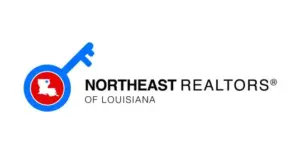Look, 96% of homebuyers start their search online now. If you’re a real estate agent and your website sucks, or worse, if you don’t have one, you’re basically invisible to most potential clients. This isn’t 2005 anymore. Your website isn’t just nice to have. It’s probably where most people will form their first impression of you.
Agents are investing more than half of their marketing budgets in digital now, a huge shift from just a few years ago. Your website is center stage, so it better be good.
How Well Do Real Estate Sites Actually Convert?
Here’s the reality check: most real estate websites convert between 2.2% and 2.8% of visitors into leads. That means for every 100 people visiting your site, only 2-3 fill out a form or contact you. The rest just look around and leave.
The big players like Zillow and Realtor.com hit above 5% conversion rates. They’ve figured out what works: clean interfaces, comprehensive listings, and smart lead generation. That’s your benchmark.
Breaking it down further:
- Organic search traffic converts around 3.2%
- Paid ads only convert about 1.5%
- The average across the board is 2.7%
- Bad sites convert under 1%
What this actually means for you is that if your site is converting under 1%, something’s fundamentally broken. It could be slow loading times, outdated design, weak calls to action, or just a confusing user experience. The good news is that if you fix those issues, you could easily double or triple your leads without spending more on marketing.
Here’s something interesting: organic search beats paid ads for conversion. So before you dump thousands into Google Ads or Facebook campaigns, maybe spend some time and money on your SEO. Get your site ranking naturally, and you’ll see better returns.
One more stat that matters: 66% of buyers say photos are the most essential part of a listing. And get this: people spend about 10 weeks searching online before calling an agent. That’s 10 weeks of them judging you based on your website. First impressions really do matter here.
Figure Out What You Want First
Before you build anything or hire anyone, you must know what you’re trying to accomplish. Don’t just say “I need a website.” Be specific about outcomes.
Lead Generation
This is usually priority one. You want visitors to give you their contact info. You can do this by using simple forms paired with actual values. Nobody fills out a form just to fill out a form. Offer something useful. A free home valuation, a neighborhood market report, a first-time buyer’s guide, whatever makes sense for your market.
Keep the forms short. Name, email, phone number, maybe what they’re looking for. That’s it. Every extra field you add drops your conversion rate. And for the love of god, connect it to a CRM so you can actually follow up. I’ve seen agents generate leads and then lose them in a spreadsheet.
Property Search
If you’re in the US or Canada, you need IDX integration. This is what pulls MLS listings directly to your site in real time. Without it, you’re manually updating listings like it’s 1995, or worse, you don’t have listings at all.
Good IDX includes filters for price, location, property type, and number of beds and baths. It also includes high-quality photos, virtual tours when available, and maps. School data helps, too, if you’re in a family-oriented market. Add features like saved searches or new listing alerts, and people will keep coming back.
The key is to make it easy to use. If someone has to click through five pages just to see homes in their price range, they’ll go to Zillow instead.
Branding and Content
Your website is also where you show people who you are. An About Me page isn’t optional, it’s essential. Put up a good photo (professional but not stiff), write an actual bio that sounds like you (not corporate speak), and include real client testimonials.
A blog helps if you can maintain it. Write about your local market, new developments, buyer and seller tips, and neighborhood spotlights. It shows you’re active and demonstrates you know what you’re talking about. Post weekly or bi-weekly if possible. If you can’t commit to that, don’t start: an abandoned blog from 2022 looks worse than no blog.
Choosing Your Platform
You’ve got several options here. The right choice depends on your budget, how much control you want, and how tech-savvy you are.
Website Builders (Wix, Squarespace, Weebly)
These are the easiest options. They offer drag-and-drop templates, hosting included, and no coding needed. You can have something live in a day or two. The monthly cost is usually reasonable, between $20 and $50.
Suitable for agents who need something quickly and don’t want to deal with technical stuff.
The downside is that you’re limited by their templates. Want something custom? Too bad. Adding advanced IDX features can be tricky or impossible, depending on the platform.
WordPress
This is the middle ground, more flexible than builders and less expensive than custom development. There are thousands of real estate themes (templates) available and plugins for pretty much any feature you need. IDX plugins like MLSimport, Showcase IDX, iHomefinder, or tools like mlsimport.com make MLS integration straightforward.
The platform scales well. Start simple and add features as your business grows. You have complete control over design and functionality.
The trade-off is that you’re responsible for updates, backups, and security. Either you’ll do it yourself or pay a developer to handle it. It’s not complicated, but it’s ongoing work.
Real Estate Platforms (Placester, AgentFire, Real Geeks)
These are turnkey solutions built specifically for agents. IDX integration, lead capture forms, CRM tools, everything’s included out of the box. They know what real estate agents need because that’s all they do.
Monthly fees are higher, usually $100-300+, depending on features. You have less control over customization, but everything works together smoothly.
Suitable for: agents who want it done right without thinking about it much.
Custom Development
Hire a developer to build precisely what you want unique design, any feature imaginable, complete control.
Also, it’s expensive. We’re talking thousands upfront and ongoing costs for maintenance and updates, and you need someone technical on call when things break.
Usually, it only makes sense for brokerages, or if you have a serious budget and specific needs that other platforms can’t meet.
What Your Site Actually Needs
Regardless of which platform you choose, certain features are non-negotiable.
IDX Property Search
This should be front and center on your homepage. It should have a big, obvious search bar, easy-to-use filters, and detailed listing pages with multiple photos, property descriptions, maps, and nearby schools.
The listing pages need to load fast, really fast. If someone clicks on a property and waits more than 2-3 seconds for it to load, there’s a good chance they’re gone. Page speed kills more conversions than almost anything else.
Advanced features like saved favorites or email alerts for new listings matching their criteria? Those keep people engaged and returning to your site instead of the big portals.
Content That Actually Matters
Beyond listings, your site needs to tell your story and demonstrate expertise. Create dedicated pages for buyers (what to expect, financing info, inspection tips) and sellers (pricing strategy, staging advice, timeline). Neighborhood guides work great for local SEO.
Client testimonials build trust. Showcase your credentials: years in business, sales volume, professional certifications. And again, that professional headshot. People want to know who they might be working with.
Market updates and blog posts improve your SEO and position you as a local expert. Write about what’s happening in your market, interest rate trends, what buyers are looking for, and new restaurants or developments in town, real stuff, not generic advice anyone could Google.
Lead Capture and Calls to Action
Every page should guide visitors toward contacting you. Contact buttons must be obvious: top right corner, footer, floating button on mobile. Property inquiry forms are directly on listing pages like newsletter signup for market updates.
Make forms simple. The easier it is to contact you, the more people will do it. And again, everything connects to your CRM. No lead left behind.
The Technical Basics
Your site must work on phones. Over 60% of real estate searches happen on mobile devices. Responsive design isn’t optional.
Navigation should be simple. Users should be able to find what they want in 2-3 clicks at the maximum. Contact information should be on every page, preferably in the header and footer.
SSL certificates (the https thing) are required. Google penalizes sites without them, and people don’t trust them. Regular backups protect you when something breaks.
For SEO, use relevant keywords in your page titles and descriptions: “Homes for sale in [your city]” not “Welcome to my website.” Optimize for local search and claim your Google Business Profile, get listed in local directories, and earn backlinks from community sites.
Keep It Running
Your website isn’t a “set it and forget it” thing. It needs regular maintenance.
Content Updates
There are new listings, obviously, but also blog posts, market statistics, and community news. An outdated site signals you’re not active. If your last blog post is from 2023, potential clients wonder if you’re still in business.
Monitor Performance
Google Analytics shows you what’s working. Which pages get the most traffic? Where do people live? What search terms bring them to you? Use that data to improve.
Check for broken links monthly. Test your contact forms: I’ve seen sites where the forms didn’t send emails, and the agent had no idea. High bounce rate on a particular page? Figure out why and fix it.
Technical Maintenance
If you’re on WordPress, keep plugins and themes updated. Old software is a security risk. Even on hosted platforms where updates happen automatically, check that everything works after changes.
Strong passwords, occasional security scans, and remove old plugins you’re not using : basic digital hygiene.
Speed Optimization
Compress images before uploading them. Huge photos kill load times. Enable caching so browsers don’t reload everything on every visit. A CDN (content delivery network) can help with speed, too.
Test your site on different devices and browsers. What looks perfect on your desktop might be broken on an iPhone.
User Experience Reviews
Click through your own site regularly. Is navigation logical? Do the interactive features (mortgage calculator, map search) still work? Are there new tools you should add: video tours, 3D walkthroughs?
Get feedback from colleagues or friends. They’ll spot issues you’ve stopped noticing.
Backups
Set up automatic backups at least weekly. Test restoring them so you know the process works when needed. Backups are your insurance policy against disasters.
Your website is probably the first thing potential clients see about you. It needs to be fast, helpful, and current.
The best sites combine good property search, solid content, clear calls to action, mobile functionality, and security. They evolve with regular updates and improvements.
Treat your website like what it is: a 24/7 lead generator and brand builder, not a business card you create once and never touch again. Put in the work, keep it updated, and it’ll pay dividends for years.
Table of Contents







